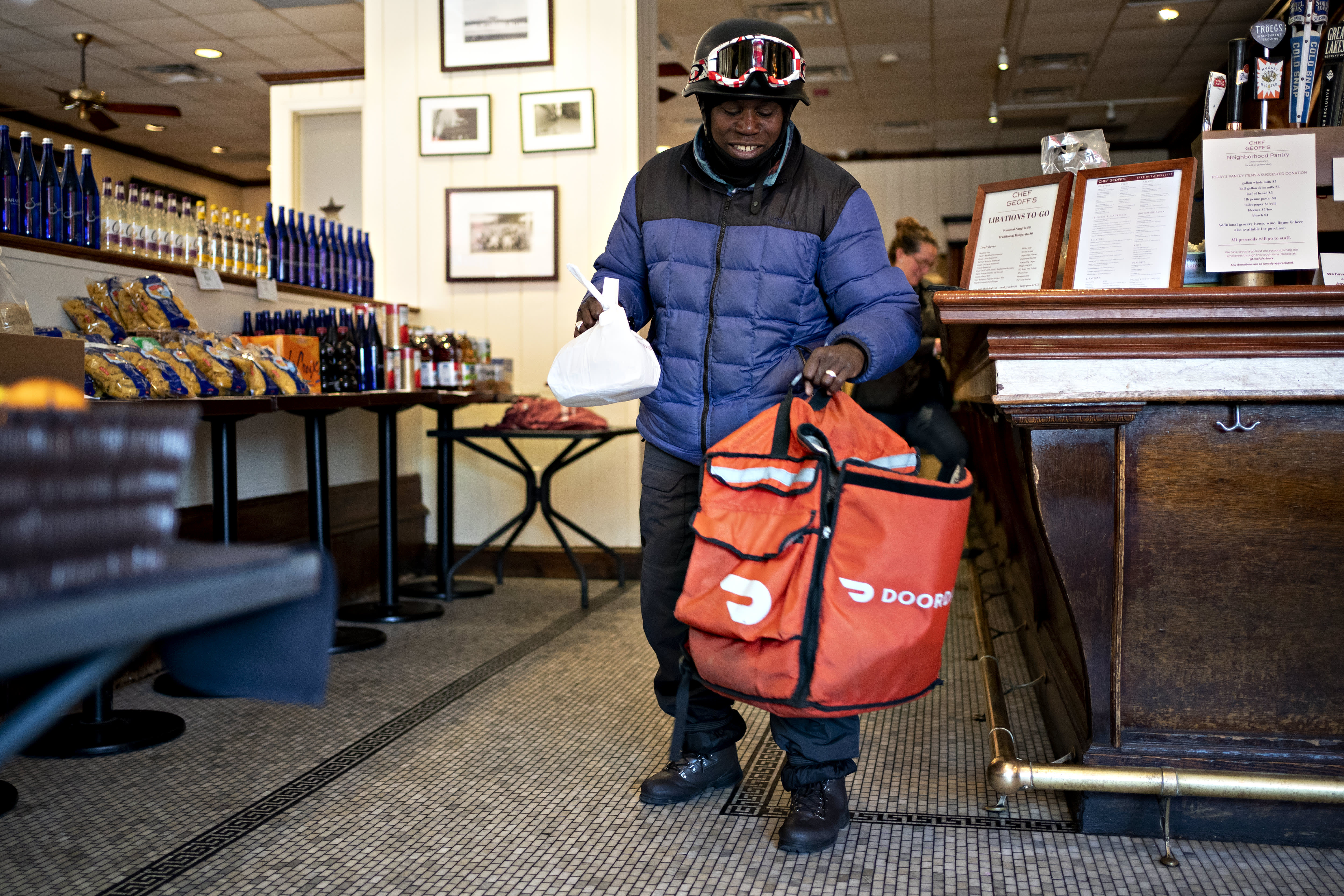A DoorDash Inc. delivery person places an order into an insulated bag at Chef Geoff’s restaurant in Washington, D.C.
Andrew Harrer | Bloomberg | Getty Images
DoorDash reached a $2.5 million settlement with the attorney general of the District of Columbia over claims that the company misled consumers on how it would allocate tips for workers, the AG’s office announced Tuesday.
AG Karl Racine sued DoorDash in November 2019 over allegations the company misled customers into believing their tips would directly increase drivers’ pay. Instead, Racine alleged at the time, those tips were used to offset the minimum payment DoorDash promised its workers under the previous tipping model in effect between 2017 and 2019. DoorDash has since revised the policy and denied the allegations in the consent order.
Under the settlement, DoorDash will be required to continue ensuring tips go to workers without reducing their base pay and provide accessible information about its payment model and policies to customers and workers.
The settlement will include $1.5 million in relief to delivery workers, $750,000 to the District and $250,000 to two local charities, according to a press release from the AG’s office.
“Today’s settlement rights a wrong that deceived D.C. consumers and deprived workers of monies that they should have been paid,” Racine said in a statement. “Gig economy companies provide important and necessary services, especially during the pandemic. However, the law applies to these companies, just as it does to their brick and mortar counterparts.”
“We’re pleased to have this issue behind us, and thank the Office of the Attorney General for DC for its work throughout this process,” a DoorDash spokesperson said. “Our focus is on continuing to support Dashers, restaurants, and customers in DC and around the country.”
The settlement comes less than two weeks after DoorDash filed its prospectus to go public. DoorDash said in its filing that failing to “cost-effectively attract and retain Dashers” was a significant risk factor to its business.
DoorDash is not the only gig company to have gained attention for its tipping policies. Racine filed suit against grocery delivery company Instacart this summer, claiming it misled customers into thinking an optional service fee went to workers, when it instead went to the company. In a statement at the time, Instacart said it always discloses to customers that tips are separate from service fees and notes that those fees goes toward its operations. It said 100% of customer tips go to workers.
Both companies have been active in pushing back on regulation that would classify their workers as employees rather than contractors. They backed the successful Proposition 22 in California alongside Uber, Lyft and Postmates to keep app-based delivery and transportation workers as independent contractors. Employment status could bring additional costs to the companies.

